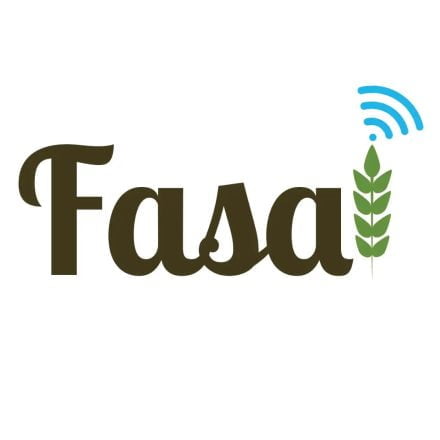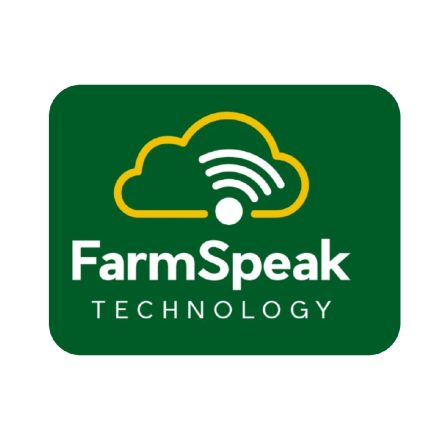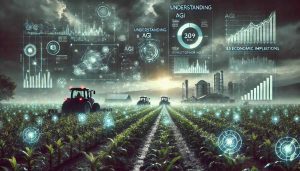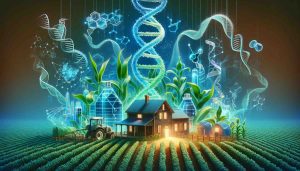Bill Gates, co-founder of Microsoft, has been investing in farmland across the United States in recent years, which has caught the attention of many. In this article, we’ll explore the reasons behind Gates’ farmland investments, as well as the potential impact they could have on the agricultural industry and the environment.
Conspiracy vs truth
Potential purchasing reasons
The agricultural strategy of Bill Gates
Largest farm landowners in the US
In this article, we delve into the reasons behind Gates’ agricultural pursuits, and what it could mean for the future of farming and sustainability.
The Facts: Bill Gates and His Farmland Empire
As of today, Bill Gates is the largest private farmland owner in the United States, with a staggering 242,000 acres of agricultural land spread across 18 states. His most extensive holdings are in Louisiana (69,071 acres), Arkansas (47,927 acres), and Nebraska (20,588 acres). But what is driving Gates to accumulate such vast expanses of farmland? Let’s explore the possible reasons.
Conspiracy vs Truth
A conspiracy theory suggested that Bill Gates owned an incredible 80% of the US farmland. In a recent AMA session on Reddit, Gates clarified that he owns less than 1/4000 of the farmland in the U.S. and has invested in these farms to make them more productive and create jobs, that is 270,000 acres of farmland, about 0,3% of US farmland.
| Information | Value |
|---|---|
| Gates’ ownership of U.S. farmland | 1/4000 of all U.S. farmland, or about 270,000 acres. (110,000 hectares) |
| Number of states where Gates owns farmland | 18 |
| Comparison of Gates’ farmland ownership | Not near 80% of U.S. farmland; a little more than one-third of Rhode Island |
Gates’ farmland investments might also have an impact on the agricultural industry and the environment, and it remains to be seen how they will unfold and what kind of impact they will have on the world.
While Gates has spent billions investing in agricultural properties to make them more productive, a growing number of retail investors are also getting a piece of the real estate market with as little as $100 through companies backed by high-profile investors like Jeff Bezos.
Potential reasons
One of the reasons behind Gates’ farmland investments could be the rise of Agtech, which is the use of technology to improve agriculture. With Agtech, the agricultural industry can become more efficient and productive, while reducing costs and environmental impact. Gates, being a technology enthusiast, might see this as an opportunity to invest in the future of agriculture and contribute to solving some of the pressing issues facing our planet.
The Growing Demand for Plant-Based Protein
As the world’s population continues to grow, so does the demand for protein. Traditional animal agriculture is resource-intensive and has a substantial environmental impact. There is a growing trend towards plant-based protein sources, which are more sustainable and environmentally friendly. Gates has expressed his support for plant-based meat substitutes, and his farmland investments may be a strategic move to secure resources for future protein production.
The Technological Transformation of Agriculture
Agriculture is on the brink of a technological revolution, with advancements in precision farming, automation, and genetically modified crops. Gates, with his background in technology, may see an opportunity to combine his expertise with his philanthropic goals. By owning farmland, Gates can implement and test cutting-edge farming technologies, which could eventually be scaled up to benefit the global agricultural industry.
Climate change is another global issue that affects agriculture, and Gates might be investing in farmland to develop sustainable farming practices that can withstand the changing climate and minimize the damage caused by extreme weather events. Farmland ownership is a powerful asset that provides control over the land and its resources. Gates’ farmland investments could be a strategic move to gain control over farmland resources, which can be used to develop sustainable agriculture practices or even promote the use of renewable energy sources.
Farmland value increase
Over the past two decades, farmland in the United States has provided average returns of 12.24%. With this rate, a $10,000 investment in farmland in 2000 would now be valued at over $96,149. Farmland returns comprise two components: land appreciation and the capitalization rates of the property. Source: NCREIF

The agricultural strategy of Bill Gates
Note that Bill Gates does buy US farmland, not farmland in other regions of the world. So the reason behind Bill Gates’ purchases of farmland in the US can be linked to the theory of Zeihan, which emphasizes the importance of North America’s strong position in agriculture for global food security over the next 2-3 decades.
This theory suggests that as the world population continues to grow, the demand for food will increase, and North America, with its abundant land and favorable climate, will play a key role in meeting that demand. It is speculated that Bill Gates may be investing in US farmland to capitalize on this trend and ensure food security for the future.

Zeihan’s theory also highlights that the US is in a favorable position for agriculture because it is not dependent on the import of energy and fertilizers, which can be costly and subject to supply chain disruptions. This further reinforces the idea that investing in US farmland can be a wise decision for the future of global food security, and may be one of the reasons why Bill Gates is acquiring US farmland.
One of the main concerns according to Zeihan is the global dependence on certain key nutrients that are essential to modern agricultural practices, including nitrogen, phosphate, and potash. While the United States is largely self-sufficient in terms of nitrogen and phosphate, it is highly dependent on imports of potash, most of which comes from Canada. Other countries, such as Brazil and Australia, are more typical of the global average, where dependence on imports of these nutrients is high. But still, the US will be in one of the best positions when it comes to food production.
In other words: US agriculture and food production will be in a key leading position in the next decades, and US farmland will gain significantly in value, making it a potentially very rewarding financial (producing) asset.
Supporting Agricultural Innovation for Global Impact
Bill and Melinda Gates established the Bill & Melinda Gates Foundation in 2000, which has since become one of the world’s most influential philanthropic organizations. One of the foundation’s primary focus areas is agriculture, with the goal of improving food security and reducing poverty in developing countries.
Developing Climate-Resilient Crop Varieties
The Gates Foundation supports research and development efforts to create climate-resilient crop varieties. These crops are designed to withstand the challenges posed by climate change, such as droughts, floods, and temperature extremes. By investing in the development of these crops, the foundation aims to safeguard global food security in the face of a changing climate.
Promoting Sustainable Livestock Production
Livestock production is a significant contributor to greenhouse gas emissions and deforestation. The Gates Foundation is actively involved in initiatives that promote sustainable livestock practices, such as improved animal health, breeding, and feed management. These efforts aim to reduce the environmental impact of livestock production while simultaneously increasing productivity and profitability for farmers.
Bill Gate’s other investments
In 2015, Gates founded Breakthrough Energy Ventures (BEV), a billion-dollar fund dedicated to investing in clean energy technologies. BEV has since backed several agri-tech startups, such as Pivot Bio, CarbonCure Technologies, and Nature’s Fynd. Gates’ farmland acquisitions may serve as a platform for these innovative companies to develop and implement their solutions, ultimately driving progress towards a more sustainable future.
Pivot Bio: Revolutionizing Crop Nutrition
Pivot Bio is a startup that aims to replace synthetic nitrogen fertilizers with environmentally friendly alternatives. They have developed a groundbreaking technology that enables cereal crops to fix nitrogen directly from the atmosphere. This innovation has the potential to reduce fertilizer runoff and decrease greenhouse gas emissions.
CarbonCure Technologies: Turning CO2 into Concrete
CarbonCure Technologies is a Canadian company that has developed a unique process for capturing CO2 emissions from industrial sources and using them to produce concrete. By recycling CO2, CarbonCure’s technology reduces the carbon footprint of concrete production and could have a significant impact on global CO2 emissions.
Nature’s Fynd: Creating Sustainable Protein from Fungi
Nature’s Fynd is a food tech startup that produces sustainable, plant-based protein using a unique strain of fungi. Their innovative fermentation process results in a versatile, nutrient-dense
protein that can be used in a variety of applications, including meat and dairy alternatives. With Gates’ support, Nature’s Fynd is on track to revolutionize the way we produce and consume protein.
Bill Gates’ farmland investments reflect a strategic vision for the future of agriculture. By acquiring vast amounts of farmland, Gates has the opportunity to influence the direction of agricultural practices, promote the adoption of sustainable farming methods, and support the development of innovative agri-tech solutions. Ultimately, these efforts contribute to the broader goals of combating climate change, ensuring global food security, and improving the livelihoods of farmers worldwide.
Top 10 agricultural landowners in the US
So let’s see, Mister Gates clearly is Number 1 now!
| Rank | Landowner | Amount of Land (acres) | Main Use |
|---|---|---|---|
| 1 | Bill Gates | 242,000 | Farming (various crops), conservation, research |
| 2 | Ted Turner | unclear, 14 ranches | Cattle ranching, bison, environmental projects |
| 3 | Stewart & Lynda Resnick | 192,000 | Citrus fruits, pistachios, almonds, pomegranates |
| 4 | Offutt Family | 190,000 | Potatoes, agricultural equipment sales and services |
| 5 | Fanjul Family | 152,000 | Sugarcane, biomass power plant |
| 6 | Boswell Family | 150,000 | Tomatoes, cotton |
| 7 | Stan Kroenke | 124,000 (in Montana) | Real estate, ranching |
| 8 | Gaylon Lawrence Jr. | 115,000 | Wheat, corn, fresh vegetables |
| 9 | Simplot Family | 82,500+ | Hay, wheat, corn, barley, potatoes |
| 10 | John Malone | 100,000 (of 2.2m total) | Cattle and beef, ranching |
As we’re at it, who are the largest landowners in the world:
| Rank | Landowner | Amount of Land (acres) | Main Use |
|---|---|---|---|
| 1 | Family of Queen Elizabeth II | 6.75 billion | Technical ownership of British Commonwealth |
| 2 | Catholic Church | 177 million | Includes churches, schools, farmland, and other real estate |
| 3 | Inuit people in Nanuvut, Northern Canada | 87.5 million | Indigenous land, considered uninhabitable by some |
| 4 | Gina Rinehart | 22.7 million | Mining operations and Wagyu beef |
| 5 | Mudanjiang City mega farm in China | 22.5 million | Dairy farming, including over 100,000 cows |
| 6 | Joe Lewis and his shareholders | 15.5 million | Cattle farming |
| 7 | MacLachlan family | 12.5 million | Wool production |
| 8 | Handbury Group | 12 million | Cattle farming |
| 9 | Williams family | 10 million | Cattle farming |
| 10 | Costello and Oldfield families | 7.5 million | Cattle farming |
FAQs: Now, let’s move on to some frequently asked questions about Bill Gates and his farmland investments:
- Does Bill Gates really own 80% of U.S. farmland? No, this is a conspiracy theory that has been debunked. Gates owns less than 1/4000 of all U.S. farmland, which amounts to about 0.03% of the total.
- How much farmland does Bill Gates own? Bill Gates owns approximately 242,000 acres of farmland in the United States, making him the largest private farmland owner in the country.
- Why did Bill Gates invest in farmland? Gates’ investment team made the decision to purchase famrland because he knows that agriculture will play a very important role in the context of worlwide food security in the 2020-2040s.
- What is the role of Cascade Investment in managing Gates’ farmland investments? Cascade Investment, a private investment firm founded by Bill Gates, manages his farmland investments. The firm focuses on long-term, value-driven investments, and seeks opportunities to implement sustainable farming practices and technological innovations in agriculture.
- What are some potential benefits of Bill Gates’ farmland investments? Potential benefits of Gates’ farmland investments include improved food security, the adoption of advanced farming techniques, and environmental conservation through the promotion of sustainable agriculture practices.
- What are some criticisms and concerns about Bill Gates’ farmland investments? Critics have raised concerns about Gates’ farmland investments contributing to the concentration of wealth and land ownership in the United States, as well as the potential influence he may have on food production and agricultural policies.
- How can I invest in farmland myself? Good question – go check acretrader.com

















